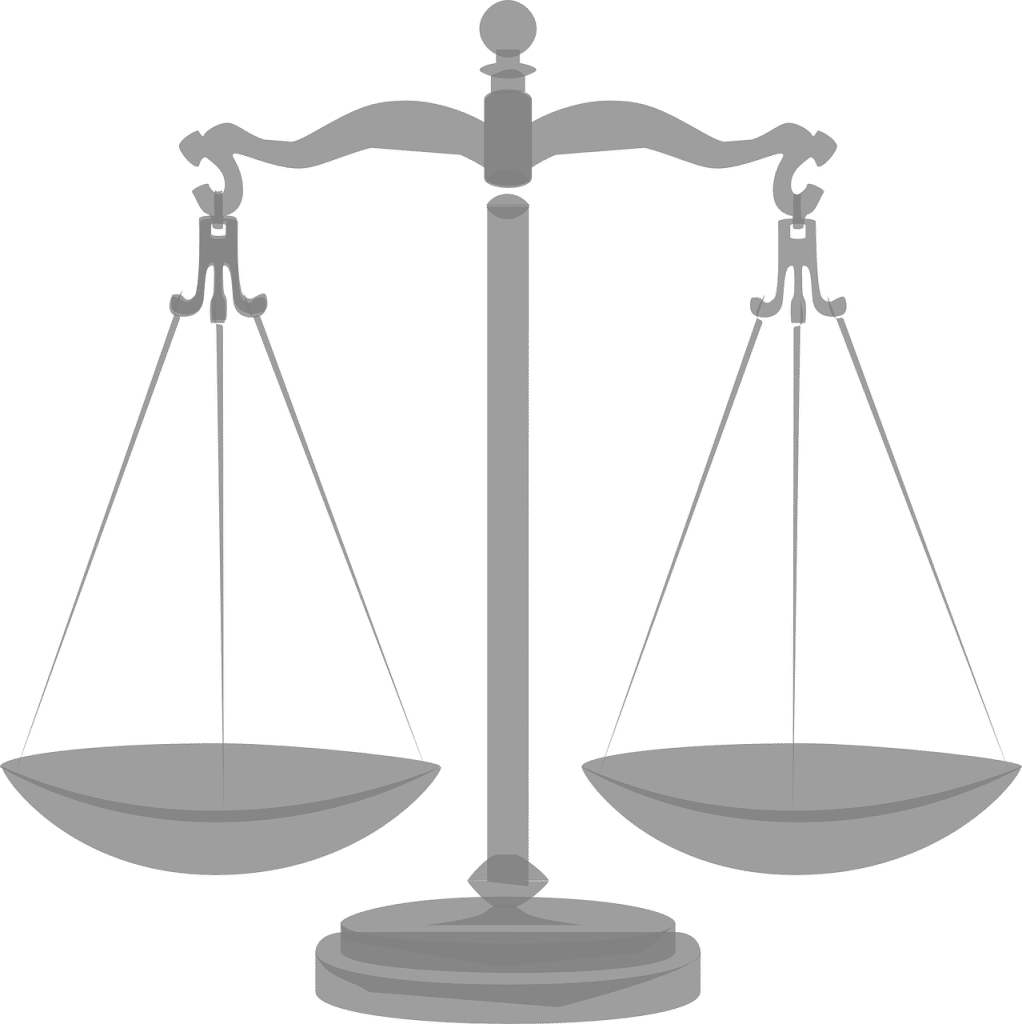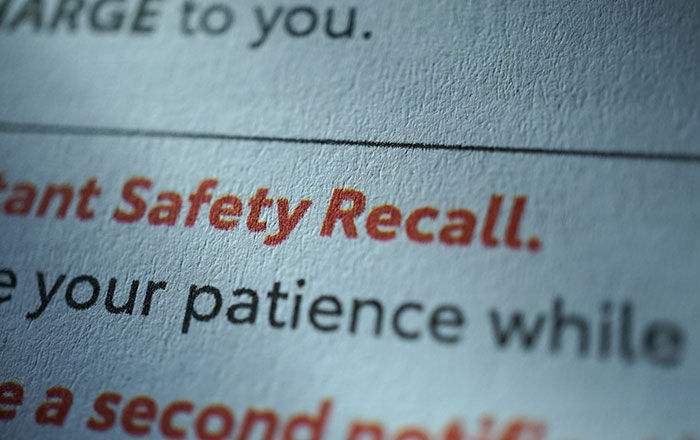South Carolina Dangerous Drugs & Supplements Attorney
Doctors and the pharmaceutical companies that manufacture them tell us the prescription medications we take are supposed to help us feel better. However, the sad truth is that drug manufacturers are more concerned with profits than the health of those who take their drugs, so the dangerous drugs side effects that harm and kill are not necessarily first in their mind as they push for the pills to be marketed.
Healthcare professionals may push you to take drugs you do not need to take or may overlook the dangerous side effects. In either case, taking dangerous drugs can seriously injure or kill, you or a loved one. If your loved one passed away due to a dangerous drug, a South Carolina dangerous drugs lawyer can fight on your behalf for wrongful death damages.
If you or a family member has been sickened or suffered health complications from a dangerous drug in the Sumter or Columbia, South Carolina area, please contact a South Carolina dangerous drugs lawyer at McWhirter, Bellinger & Associates, P.A. Our dangerous drugs lawyers understand product liability claims and are prepared to help you seek the justice you deserve for your injuries caused by a pharmaceutical company.
Drugs & Supplements
Dangerous Drug Statistics
- In 2006, the CDC estimates that 350,000 Americans died of drug reactions or interactions
- Two-thirds of doctor’s visits result in the patient being given a drug prescription
- In 2004, more people ages 45 to 54 died as a result of unintentional drug overdoses than died in automobile accidents
- Nearly 85 percent of people 65 and older are taking at least one drug prescription, and many are taking several different drugs at the same time
For many people, prescription drugs are a way of life and they need these drugs to function every day. There is a drug for almost every condition. Rather than treating what might be the cause of the condition, many doctors will throw a drug at it to see if it will solve the problem. Most of the time, the drug is exactly what is needed. But sometimes the drug’s side effects are more dangerous than what the drug is needed for.
What Types of Damages Are Available For A Dangerous Drug Injury Case in South Carolina?
Those who have been injured by dangerous drugs may be eligible to receive compensation. Every case is different, so it is best to speak with a personal injury attorney who can assess your case and advise you on your next steps. If they believe you have a case and you choose to hire them, they can serve as your advocate throughout the entire legal process, building the strongest case possible and fighting to make sure you receive every penny you’re rightfully owed.
Victims of dangerous drug injury cases in South Carolina often receive damages for the following:
- Medical expenses – This includes all medical treatment received as a result of the injury, including hospital stays, surgeries, physical therapy, rehabilitation costs, medications, and more.
- Lost wages – If you are unable to work as a result of your injury, you may be eligible to receive compensation for lost wages.
- Disability or permanent injury – If the drug makes you disabled and/or leads to permanent injury, you may be eligible for compensation.
- Pain and suffering – Not all injuries come with a receipt. Victims can receive compensation for non-economic damages such as physical and emotional pain and suffering and mental anguish that resulted from the injury.
- Punitive damages – In certain instances, victims of dangerous drug cases can receive punitive damages, which are aimed at punishing the manufacturer or distributor of the drug for their negligent or reckless behavior. These damages are designed to deter the guilty party from behaving in a similar way in the future.
If you choose to pursue a claim, that claim may result in a settlement reached with the other side’s insurance company. While it’s true that most cases do settle outside of court, it’s important to remember that not every settlement offer is a fair offer.
Many victims of dangerous drugs in South Carolina make the mistake of accepting a low-ball settlement offer because they think the sum seems fair – but they often don’t take future medical expenses or non-economic damages (such as pain and suffering) into account. That’s why hiring a personal injury lawyer is extremely beneficial. They will place a correct value on your case, taking every single factor into account, and will refuse to accept low-ball settlement offers.
If your claim cannot be settled outside of court, it will need to go to trial where it can be heard in front of a judge and jury. Your personal injury lawyer will represent you in court just as they did at the negotiating table.
Oftentimes, those who have been injured by dangerous drugs are hesitant to file a claim for damages. While that is perfectly understandable, it is important to understand that you deserve compensation if you have been unfairly hurt due to a product manufacturer’s negligent actions. No one should have to pay out-of-pocket for damages received as a result of someone else’s wrongdoing.
Sadly, some victims lose their lives due to dangerous drugs. In such cases, the deceased person’s family can file a wrongful death lawsuit to recover damages which may include:
- Medical expenses
- Pain and suffering
- Lost prospect of inheritance
- Loss of companionship
- Loss of support services
- Loss of guardianship and parental guidance
- Funeral costs
- Other end-of-life expenses
Although no amount of money can bring back a loved one, a South Carolina wrongful death personal injury lawyer will do their best to recover compensation which can help to lessen the financial burden associated with the death of a family member.
Who is Liable For Dangerous Drug Injuries?
Drugs pass through a number of hands before they are taken by a consumer. As a result, it can be difficult to determine who is responsible for a dangerous drug injury. It is also possible for more than one party to share liability for a dangerous drug.
Determining fault is a complex process that requires a vast amount of research and investigation. While you are not required to hire a personal injury lawyer, doing so is highly advised because it means you will have a legal professional on your side to do all the legal legwork and push back against powerful companies that will deny liability at every turn.
An experienced South Carolina dangerous drug lawyer can also make sure your claim is filed within the statute of limitations, which is generally three years (with some exceptions), and will work with you to make sure you build the strongest case possible, which will include investigating the circumstances around your injury, gathering your medical records, and interviewing any witnesses.
Although filing a claim is not a fun process, it can be made easier by hiring a qualified lawyer who is experienced in dangerous drug cases like yours. They will do everything they can to hold the guilty party accountable and make sure you receive fair compensation for the injuries you incurred by taking the drug.
Remember – medicines are supposed to help us, not hurt us. Patients put a lot of trust in pharmaceutical companies, distributors, and healthcare providers to look out for their best interests when it comes to taking prescription and over-the-counter drugs.
If a manufacturer, distributor, or another party knew of a risk associated with a drug but failed to do anything about it, they must be held responsible for putting profit over patients. We all deserve to know the risks associated with the substances we put into our bodies before we take them.
What Can Go Wrong When Patients Take Dangerous Drugs?

Dangerous drugs can cause a number of health issues, and even death. That’s why it’s incredibly important to seek medical help if you believe a dangerous drug has adversely affected you, and to seek compensation if you have been seriously injured.
Here are some of the most common injuries caused by dangerous drugs in South Carolina:
- Adverse reactions/side effects – These can range from minor to severe, and may include issues such as serious allergic reactions, gastrointestinal problems, neurological problems, dizziness, drowsiness, and more.
- Increased risk of other health conditions – Dangerous drugs sometimes lead to an increased chance of serious health conditions including stroke, heart attack, and diabetes.
- Birth defects – Pregnant women who take dangerous drugs often pass the risks onto their unborn babies, which can result in birth defects.
- Wrongful death – Patients sometimes pay the ultimate cost after taking dangerous drugs.
Sadly, many injuries that happen to patients in South Carolina could have been prevented if those responsible for the manufacturing, distribution, and prescribing of the drugs had been thorough with their research and honest about their findings. The unfortunate truth is that parties often withhold valuable information because they care more about money than people.
Imagine being prescribed a medication which you are told will help you, only to later have a stroke which was caused by that very same medication – all because someone decided not to share the potential risks associated with the drug. No one should ever be put in that situation or be forced to bury a loved one because of someone else’s negligence or recklessness. Serious injuries and death are always devastating, but they’re even more upsetting if they were entirely preventable.
People who are injured by dangerous drugs sometimes assume they aren’t able to file a claim for their injuries because the drug was approved by the FDA. After all, anyone who has ever seen a drug commercial on TV has certainly noticed the long lists of side effects at the end of every advertisement, so it’s easy to assume that any product that makes it to market has been thoroughly and correctly researched. However, you simply can’t trust that a product is safe just because it has been approved by the FDA – especially if a pharmaceutical company has withheld important information from the FDA regarding the safety of their drug.
In fact, a study conducted by Yale School of Medicine found that one-third of new drugs approved between 2001 and 2010 had problems after approval was granted – and it took a median of 4.2 years after they were approved for the safety concerns to come to light. In other words, FDA-approved drugs can still be dangerous, and may still cause serious injury which could warrant a personal injury claim.
The South Carolina personal injury lawyers at McWhirter, Bellinger & Associates are highly experienced in representing victims of dangerous drugs, and would be happy to speak to you about your case. There’s no cost to speak with us, and there’s no obligation to hire us.
Can I Sue After a Defective Drug Has Been Recalled?
If a drug has been found to be dangerous or defective, the FDA can recommend it be recalled by the manufacturer. They can also order the manufacturer to recall a medical device by statute if there is reasonable probability that a device may cause serious injury or death.
Companies often issue recalls after the FDA has expressed concerns about a drug. Those concerns can come from a number of places, including patient reports of health problems or through their inspection of a manufacturing facility. Sometimes, companies find problems themselves and contact the FDA.
The FDA’s reasons for each recall recommendation can vary, but they are typically prompted because the agency has determined a product poses a risk of illness, injury, or consumer deception.
Once the FDA has identified a product for possible recall, it conducts a health hazard evaluation, during which a special committee of scientists is tasked with reviewing the drug or device.
When a product is recalled, it is removed from the market. When this happens, it can be scary for those who have been taking the drug. Those who have experienced adverse effects as a result of the drug might also wonder whether they can sue the manufacturer and/or other parties after the recall occurs.
The truth is that you can still sue after a defective drug has been recalled, and the recall can actually strengthen your case because it shows the drug was taken off the market because of legitimate safety concerns.
The process of filing a dangerous drug lawsuit is the same regardless of whether the drug has been recalled or not. If you hire a personal injury lawyer, they will gather the exact same information from you, conduct the same research, interview the same relevant parties, and examine your medical history to build the strongest case possible for you.
It’s important to remember that if the drug that harmed you has not been recalled, you may still have a case. A recall is not the only indication that a drug is harmful.
A personal injury attorney will work with you to determine whether you have a case based on your experience with the drug and the adverse effects it has caused. If you pursue a claim, be sure to cooperate with your attorney when they ask for additional information that may help strengthen your case. Your cooperation and communication will be key as they work to make sure you receive fair compensation.
No one ever dreams of filing a personal injury claim, but doing so is sometimes necessary. When you file a claim, you are seeking not only to receive damages for the adverse effects that you have encountered as a result of a dangerous drug, but also to hold the responsible party accountable for their actions.
It should go without saying that no one should ever be left to suffer financially, physically, or emotionally because a drug manufacturer failed to do their due diligence before bringing a product to market. When consumers are put in this position, they have every right to fight back.
Can I Sue For Drug Side Effects?

If you have experienced serious or life-threatening side effects as a result of a drug, you may be able to file a product liability lawsuit. Every dangerous drug case is different, so it’s best to speak to a qualified South Carolina personal injury lawyer to determine whether you should file a claim against the responsible party.
Side effects are possible with most drugs, and not every side effect will warrant a personal injury claim. For instance, you might experience an upset stomach for a few days after starting a new medication. That type of side effect is unlikely to be permanent or cause long-term damage to your body.
However, some side effects can cause major and lasting problems. Here are some examples of serious side effects which may warrant a personal injury claim:
- Severe allergic reactions
- Heart issues (heart attack, heart failure, high blood pressure, blood clots)
- Stroke
- Organ damage or failure
- Neurological disorders (seizures, brain damage, etc.)
- Cancer or other serious illnesses
- Psychiatric disorders (depression, anxiety, suicidal thoughts)
- Birth defects
- Death
However, simply proving you have experienced such conditions after taking a drug isn’t enough. You will need to prove that the manufacturer, distributor, physician, laboratory, or another party’s negligence caused you to experience those adverse effects.
A common example of negligence in a dangerous drug case would be that the manufacturer knew or should have known about the risks associated with their products, but did not take appropriate action to protect consumers. Another example might be that your physician did not warn you of the risks associated with a drug or failed to monitor you after you took the drug.
Negligence can come in many forms, but it isn’t always easy to prove. That’s why hiring an experienced South Carolina personal injury attorney is highly advised in product liability cases.
Even in cases that seem straightforward, you must remember that “Big Pharma” and other powerful companies have teams of lawyers who will do everything they can to downplay the harm that their client’s product caused. Hiring your own lawyer to go head-to-head with the defendant’s attorneys is the best way to approach any type of personal injury claim.
If you lost a loved one due to a dangerous drug, you may be eligible to file a wrongful death claim. These types of claims are also best left to a personal injury lawyer, and could result in compensation for your loved one’s medical bills, pain and suffering, end-of-life costs, and more. Money cannot bring your loved one back, but it can help alleviate the financial burden caused by their death – something that you shouldn’t have to worry about, especially when you’re grieving.
Personal injury claims can seem daunting, which is why many people choose to hire an experienced attorney who knows how to build a strong case and negotiate with the other side. This is especially beneficial for those who continue to suffer from the adverse effects of a dangerous drug, as it allows them to focus entirely on their health rather than worry about the paperwork, deadlines, and bureaucracy associated with personal injury claims. The best part is that most personal injury lawyers work on a contingency basis, which means they won’t get paid unless they help secure money for you.
Types of Defective Drug Claims in South Carolina
There are three types of defective drug claims in South Carolina – defective manufacturing, drugs with dangerous side effects, and defective marketing.
- Defective manufacturing – This type of defect can occur in a number of ways, including:
- Contamination through exposure to harmful substances such as mold or bacteria
- Drugs which are the wrong dosage or strength, perhaps due to faulty packaging or labeling
- Poor quality control at the manufacturing plant which could result in inconsistent or substandard batches of medication
- Dangerous side effects – This occurs when a patient experiences serious or life-threatening side effects as a result of a medication. In some cases, this can lead to death.
- Defective marketing – This type of defect takes place when a manufacturer fails to warn about the known risks and side effects on the product’s label and/or in supplemental literature about the product.
South Carolina also has strict liability laws which support those who have been injured by defective products.
In strict liability cases, the plaintiff must simply prove that:
- The product was sold in an “unreasonably dangerous” condition
- The unreasonably dangerous condition existed when the product left the control of the defendant
- The dangerous condition caused the plaintiff’s injuries
If you’re a South Carolina resident who has been negatively impacted by a defective drug, you may be eligible to receive compensation for your injuries.
The experienced attorneys at McWhirter, Bellinger & Associates have been helping victims of defective drugs for more than 40 years. They know the ins and outs of South Carolina law and how to build the strongest case possible when going up against the other side and their powerful team of lawyers. Defective drug cases can be extremely tricky, and there are a lot of moving parts. Multiple parties may share responsibility for your side effects, which is why it is highly advised that you hire an attorney who will dig deep and research who should be held accountable for your injuries.
McWhirter, Bellinger & Associates has seen firsthand the devastating effects that defective drugs can have on patients and their families, and that’s why we’ve dedicated our professional lives to helping our clients pursue justice. We believe that no one should be left to quietly suffer because of someone else’s negligence or recklessness. After all, we expect medicine to make us better – not to leave us with debilitating and life-changing injuries.
We have an outstanding track record of helping victims of defective drugs, and we would be delighted to help you if we can. Give us a call today for a free case evaluation. We’ll listen to your story and determine whether you have a case.
There’s no obligation to hire us – but if you do, we will treat you like family and bring our “A game” to the negotiating table. We will refuse low-ball settlement offers and will take your case to court if a settlement can’t be reached. Our vast experience has taught us what cases like yours are worth, and we will refuse to back down if the other side presents us with a sum that doesn’t take all of your suffering into account.
A drug company has standards it has to uphold. When it doesn’t, the consequences can result in injury or worse to the patient. If you or a loved one has become ill from the side effects of a prescription medicine made by a pharmaceutical company, please contact the dangerous drug attorneys at McWhirter, Bellinger & Associates, P.A., for an initial consultation.
With offices in Aiken, Camden, Columbia, Lexington, Newberry, Orangeburg, and Sumter, South Carolina, our personal injury lawyers are ready to serve you.
For immediate help, call a South Carolina dangerous drugs lawyer today at 888-353-5513.
















